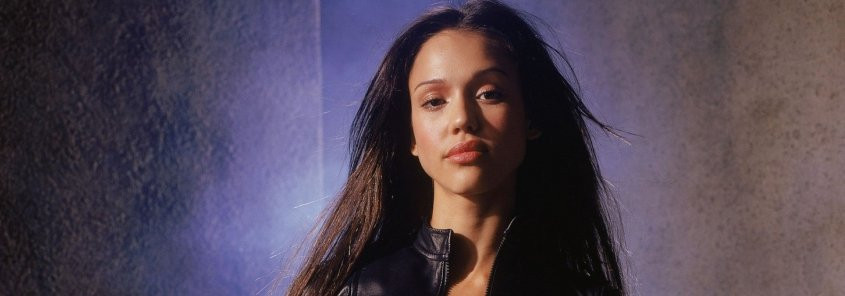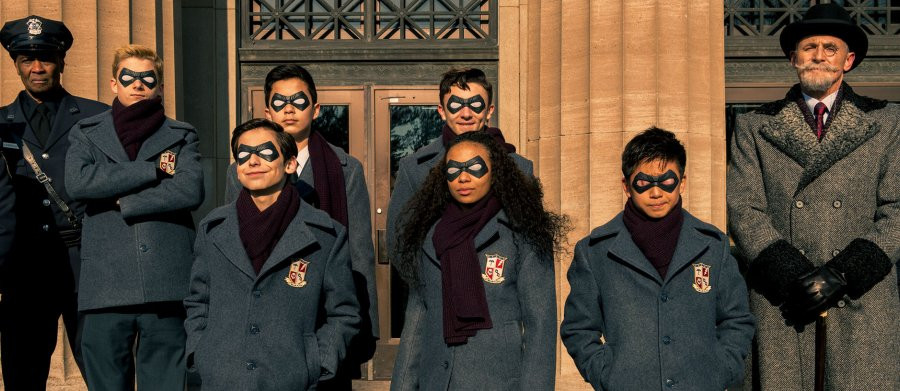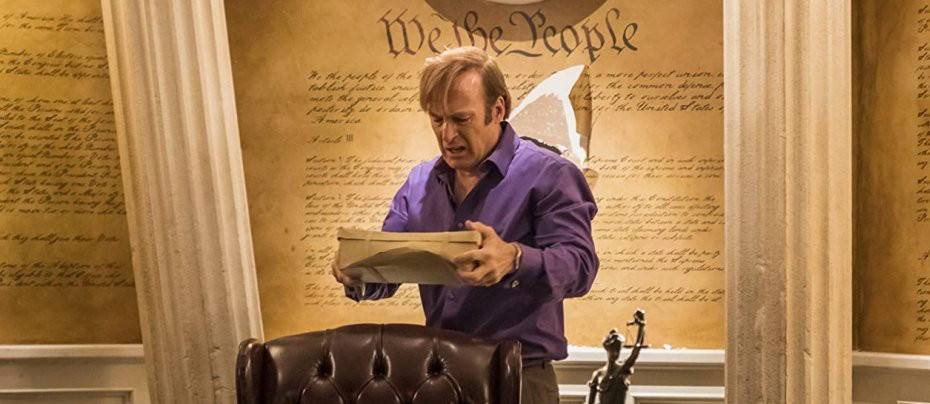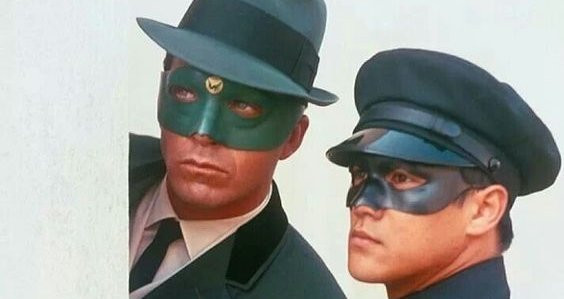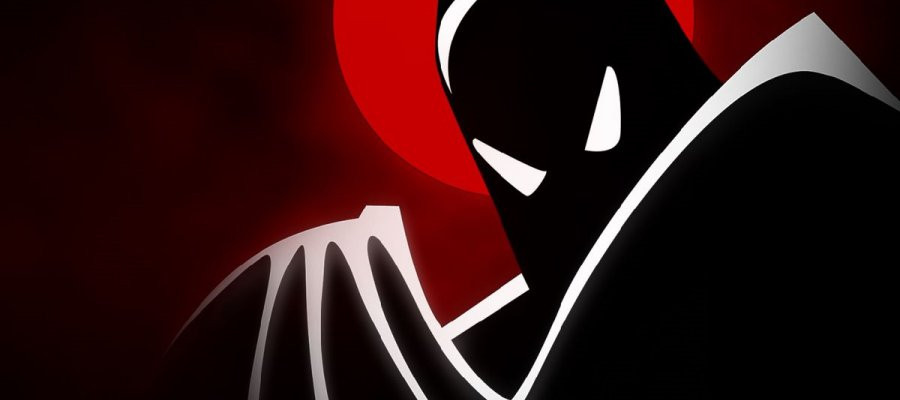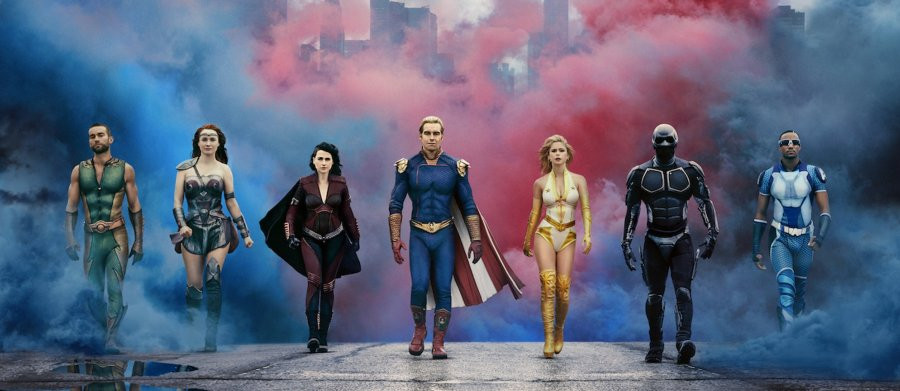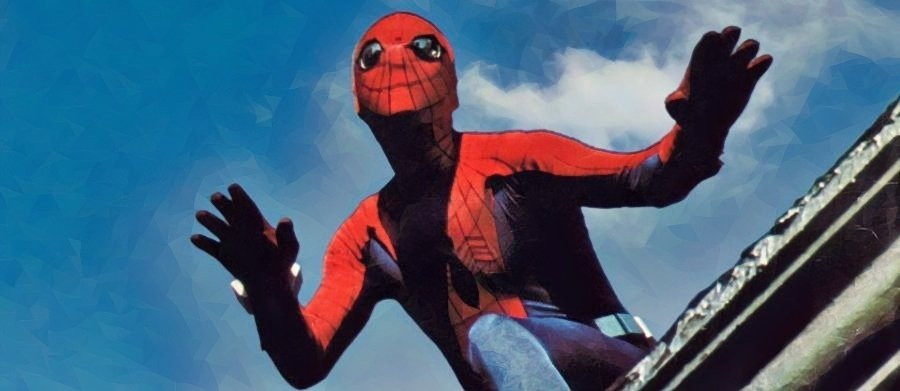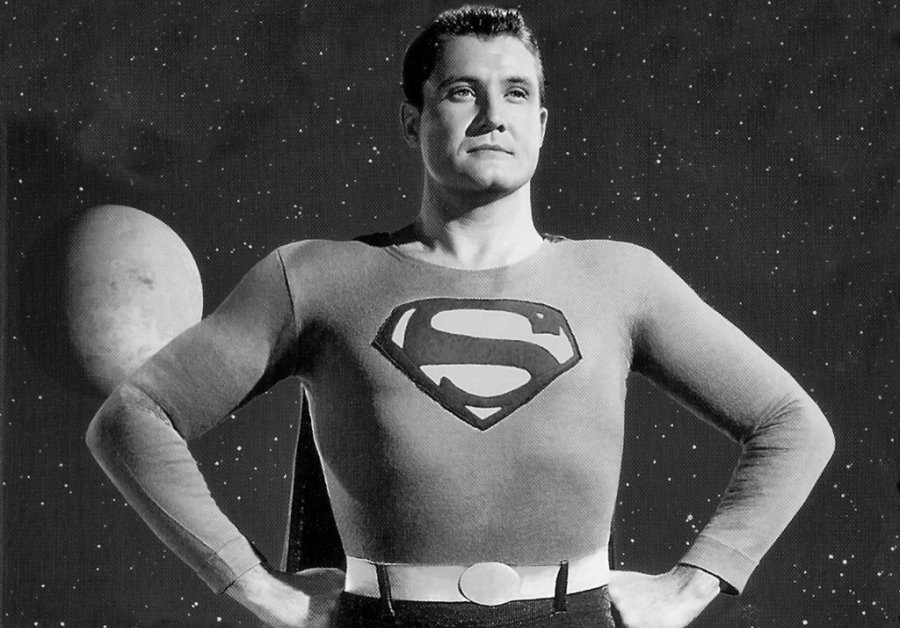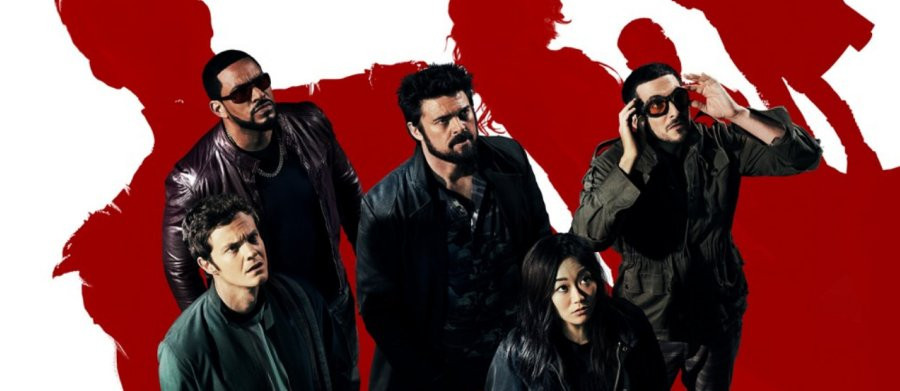
The Boys - Season 2
This is intended to be a spoiler light overview of the second season of The Boys, but it might help if you have already watched that season or at least read the overview on this website. That is true of all these overviews, that they are more useful if one knows what has gone before, but particularly true of this one because the producers apparently made the - obviously sensible - decision to analyse what really worked in Season One and double down on it in Season Two.
There is no doubt that the best thing about Season One was its spot on satire of contemporary corporate and popular culture, with ironic emphasis on the entertainment media themselves. This goes into overdrive in Season Two with spectacular success. If the triumph of satire was a little at the expense of character and plot in the first season, the second tries to compensate by spending a bit more time on character, again to good effect. However, since one cannot excel at everything at once, and it is usually a mistake to try, the price to be paid is a reduced emphasis on plot, which loses a bit of coherence. Important things happen but their impact is rather diluted by sub plots and character arcs.

Season Two still manages to top Season One simply because of the quality and courage of the satire. To appreciate it fully, you need to watch very carefully, with a quick finger on the pause and rewind buttons. The most amusing moments are often literally moments. For example, blink and you might miss the point that, amid all the tacky merchandising for the elite "Seven" superheroes, those endorsed by one with "Me Too" problems are discounted to clear.
The mock news reports and marketing material remain major highlights. For those watching on Amazon, the clever conceit that the "trivia" notes are heavily influenced by the evil Vought Corporation becomes more explicit, as if Amazon is in on the joke of satirising their own tendency towards product placement.

Even more daring is the show's willingness to satirise feminism, or at least corporate exploitation of feminism. Vought's crass "Girls Get It Done" campaign emphasising the strength of their female "Supes" seems to be a direct reference to a number of equally crass attempts to emphasise women more in real life franchises. Unlike previous portrayals of strong women in film and on television, recent positive female stereotypes are often the result of an explicit political agenda, and many fans who have no problem with strong women do object to having the agenda stuffed down their throats. In this context, there has been some online discussion about whether a scene in which several women characters beat up another in an apparent act of female solidarity is meant to be ironic or not. Your reviewer is, on balance, prepared to give it the benefit of the doubt on that point. If a hero beats up a female villain, the hero has to be female too. A male hero beating up a woman, however bad and dangerous she might be, would horrify feminists and social conservatives alike, albeit for different reasons, and rightly so. Perhaps the real issue raised by that scene is whether having several popular characters gang up on an unpopular one, irrespective of gender, endorses the lowest forms of bullying and mob mentality. That the unpopular character was genuinely unpleasant, and had shortly before shown the ability to take on multiple opponents, does not excuse the fact that supposedly sympathetic characters were literally kicking her when she was down and unable to defend herself. It was more 'Mean Girls' than female empowerment and it left a nasty taste.

If engagement with the controversial issue of feminism is not daring enough, the show dances on the live wire of fashionable susceptibility when one of the Seven is "outed" very much against her will as a "strong, proud lesbian." She does not in fact identify as such, but Vought sees this as a marketing opportunity. Much use is made of the words "brave," "pride," and "rainbow" - in selling a range of cheap fast food products.
The show even touches on the other great divisive issue of the moment, race, but so far only touches. While the cynical corporate attitude to "diversity" is duly mocked, it hesitates to go deeper at this point. It even "virtue signals" a little by bringing in white supremacists and actual Nazis - full on NSDAP not just people who get called Nazis by their opponents - as villains. As such, they are always problematic: on the one hand, genuine National Socialist types are now only a handful of marginalised losers, so few will complain if they get treated, er, unsympathetically - but, for exactly the same reason, they are not exactly convincing as an existential threat, much as it suits some to pretend otherwise.
So the satire is rather on how the frightened masses can be manipulated by actual fascists. While, given the politics of the people making the show, it may safely be assumed that this was a swipe at Donald Trump and his supporters, it is a universal truth, pointed out by Aristotle, that fear makes people irrational, and history shows how this is the basis of a strategy that has been used across the political spectrum. It is also to the writers' credit that a sinister new character seems to be based on the left wing Congressman Alexandria Ocasio-Cortez, so there is at least some attempt at equal opportunity satire, which is a refreshing change.
What appears to be a satire on a certain famously litigious organisation founded by a science fiction writer is a bit uncertain: it is witty and well observed but it is carpet bombing a soft target and it does not really contribute enough to the main plotline to earn its place.
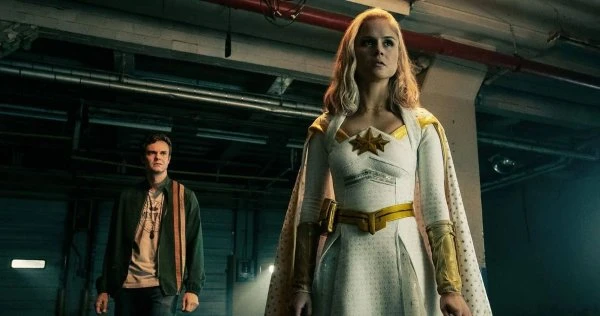
The same can be said of many of the other sub plots of the season, including Butcher's family problems, Homelander's parallel attempt to co-opt his own family, Starlight's abrupt recovery of her faith after its equally abrupt loss in the previous season, Frenchie's coming to terms with his past, and a visit to a mental hospital. This might be a product of the episodic nature of the original "comic books," but it contrasts with the first season, which has a definite structure - the parallel stories of two youngsters joining dubious organisations led by psychopaths.
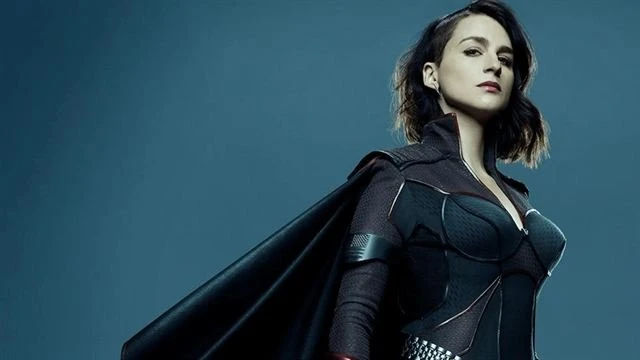
The most successful new storyline in Season Two, even if its resolution is not as satisfying as it might have been, is the introduction of a brand new character, Stormfront, played with complete authority by Aya Cash. Appointed to the Seven by higher authority, she has the confidence to present herself as a rebel, mocking even Vought. She is "social media savvy" - pause on her "memes" and you will indeed believe that they had more impact than an expensive advertising campaign - and she seems to be a law unto herself. There turns out to be a reason for this and Vought turns even her apparent rebellion to its advantage.

We get to see more of Vought's Chairman, Stan Edgar (Giancarlo Esposito), who has a few good scenes illustrating the nature of power. The one in which he puts Homelander in his place is particularly enjoyable. Another has him dealing with a player closer to own level, Alastair Adana (Goran Visnjic, a fine blend of dark magnetism and superficial affability), the Chairman of the "Church of the Collective," still making it clear who is in charge.
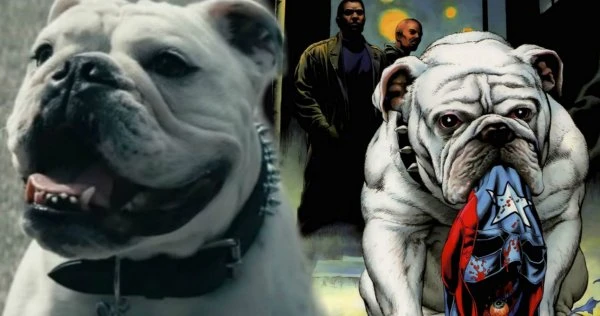
Homelander (Antony Starr) becomes slightly more sympathetic, or at least slightly less unsympathetic, in those moments when we see his loneliness and how his attempts to build his own family are doomed to fail. In the end, he’s still Homelander, literally looking down on the world and despising it, even if he is too complex to be simply written off as a villain. The same remains true of his alter ego, Butcher (Karl Urban), who also gets to reveal a bit more humanity. Nevertheless, one cannot help feeling that his only honest relationship is with his bulldog, Terror (a star - more of him, please), and there is a moment when he seems on the verge of doing something truly, truly horrible - and there is no doubt that he is capable of it.
Even more shocking is when a character we like apparently kills a security guard quite casually. Since he is one of "The Boys" we accept a degree of moral ambiguity, but later a character who is supposed to be positively good murders a totally innocent passer-by in a carjacking. There is little remorse, no accountability, and no repercussions. It is all rather chilling. The whole point of the show is to force us to question who the real heroes and the real villains might be, but few of us would want to follow a descent into total nihilism.
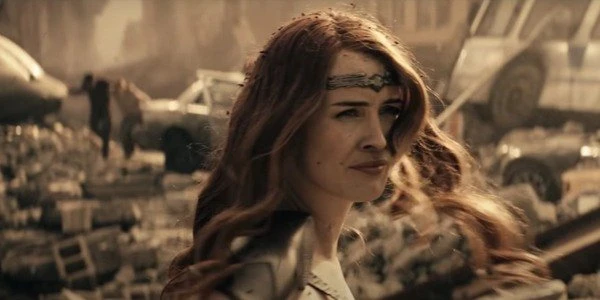
On the positive side of the ledger, it is good to see Queen Maeve (Dominique McElligott) get to do a bit more, even if her motivation is not well developed. Her colleague in the Seven, Black Noir (Nathan Mitchell) is revealed as a truly frightening killer, but also has moments of eccentricity, humanity, and vulnerability. Although he never says a word, it is a running joke that other members of the Seven claim to have a normal relationship with him off camera. His equivalent in the Boys, Kimiko (Karen Fukuhara) also begins to show more of her personality: she turns out to have a delightful smile. The Deep (Chace Crawford) has another of his comic disasters with one of his Ocean friends - we should not laugh, but remember it is only CGI...
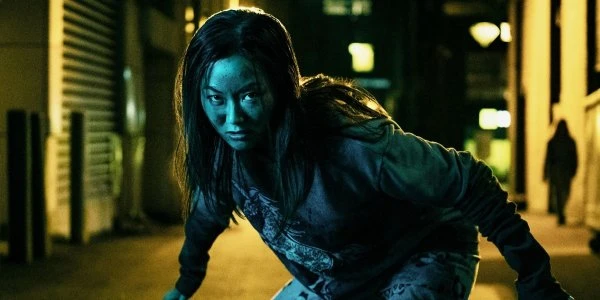
Colby Minifie deserves a special mention as the Seven's overpromoted handler, Ashley - alternately upbeat and fraught, arrogant and nervous, well meaning and clueless, controlling and out of control, she believes she deserves her position and has no idea what she is doing, which seems to sum up a lot of people in big organisational hierarchies.
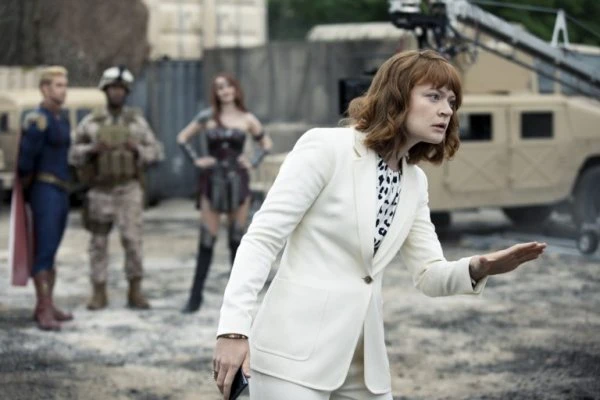
The season ends cleverly, with most of the outstanding business wrapped up - even if some of it seems a bit perfunctory - and a new villain set up for the next one. At the time of writing, events in this world - the coronavirus, "Black Lives Matter," the Capitol Riots - present satirists with a difficult challenge: how does one exaggerate reality for comic effect when it seems beyond exaggeration? Yet such events also present satirists with a lot of superb raw material if they have the courage to use it. Season One of 'The Boys' was brave and Season Two was braver still. Season Three is in a good position to be something quite special if the writers and producers keep their nerve - and do not go all Ashley on us.
Review: John Winterson Richards
John Winterson Richards is the author of the 'Xenophobe's Guide to the Welsh' and the 'Bluffer's Guide to Small Business,' both of which have been reprinted more than twenty times in English and translated into several other languages. He was editor of the latest Bluffer's Guide to Management and, as a freelance writer, has had over 500 commissioned articles published.
He is also the author of ‘How to Build Your Own Pyramid: A Practical Guide to Organisational Structures' and co-author of 'The Context of Christ: the History and Politics of Rome and Judea, 100 BC - 33 AD,' as well as the author of several novels under the name Charles Cromwell, all of which can be downloaded from Amazon. John has also written over 100 reviews for Television Heaven.
John's Website can be found here: John Winterson Richards
Published on August 13th, 2021. Written by John Winterson Richards for Television Heaven.


